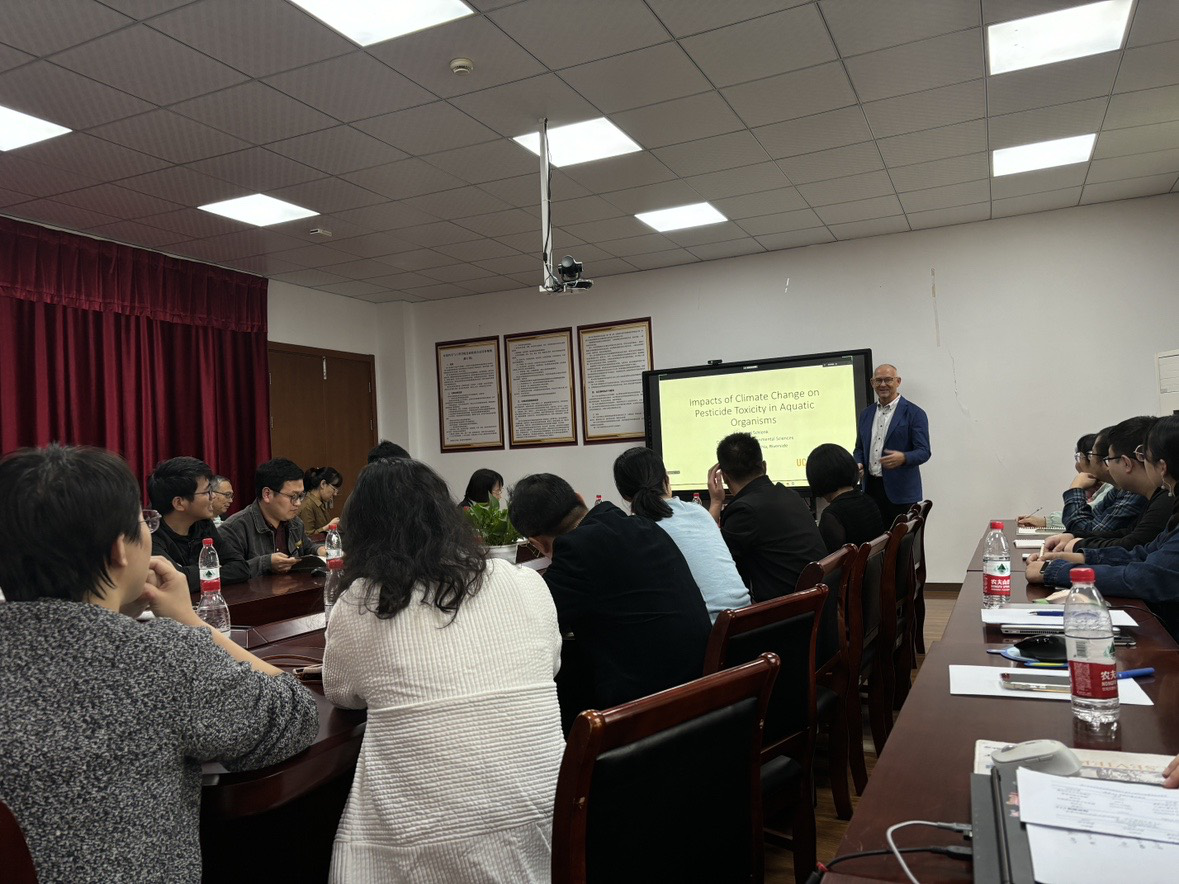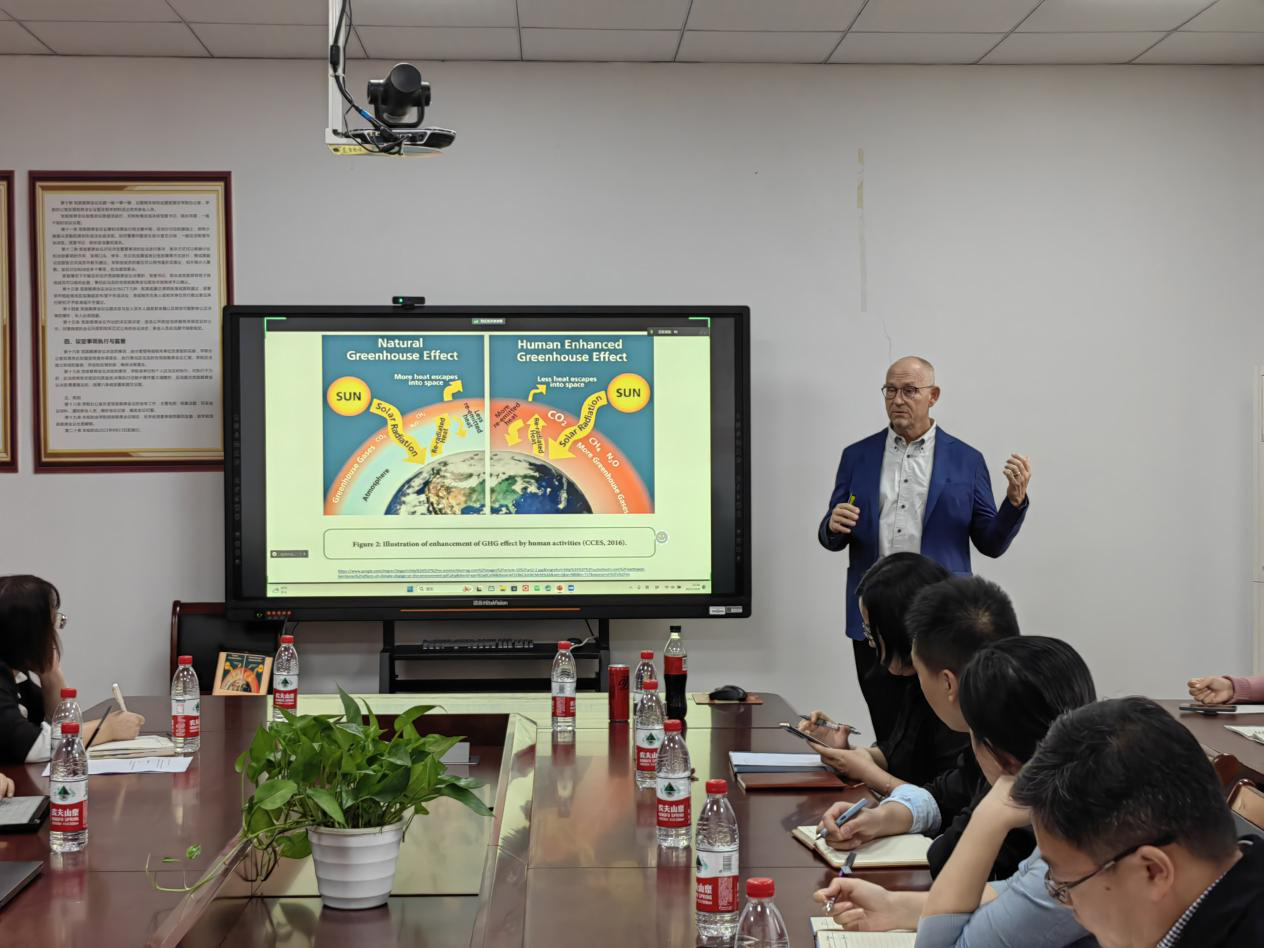|
On the afternoon of October 8, 2023, Professor Daniel Schlenk from the University of California, Riverside, and the Executive Editor of the top journal Environmental Science & Technology, was invited to our university's "Lecture Room". He delivered two academic lectures in Room 537 of the Yifu Building, titled "Impacts of Climate Change on Pesticide Toxicity in Aquatic Organisms" and "How to Publish a Paper in Environmental Science and Technology." The lecture was organized by the Department of Science and Technology of Zhejiang Gongshang University, hosted by the College of Environmental Science and Engineering, and moderated by the Executive Dean of the College of Environmental Science and Engineering, Wang Meizhen.

Professor Daniel Schlenk is an internationally renowned expert in the fields of environmental science and toxicology. He has made outstanding and innovative contributions in areas such as the toxic effects and molecular mechanisms of traditional and novel environmental pollutants and the ecological safety of endocrine-disrupting substances in aquatic environments. He has published over 360 SCI papers with a total of more than 9,400 citations and has an H-index of 48. He is also a fellow of the American Association for the Advancement of Science. Professor Schlenk has held positions such as Chairman of the FIFRA Science Advisory Panel at the U.S. Environmental Protection Agency, EPA Chemical Safety Advisory Committee, and scientific advisor of the California State Water Resources Control Board. He served as the Editor-in-Chief of the renowned journal "Aquatic Toxicology" from 2005 to 2011. Currently, he is the Executive Editor of the authoritative environmental journal "Environmental Science & Technology" (ES&T) and serves as the Deputy Editor of "ES&T Letters." Additionally, he is on the editorial boards of several other prominent environmental science and toxicology journals, including "Toxicological Sciences," "Marine Environmental Research," and "Aquatic Toxicology."

During his presentations, Professor Schlenk highlighted the phenomenon of declining marine biodiversity in the San Francisco Bay Area, which linked to the impact of pesticide pollutants from upstream agricultural areas on aquatic organisms. He focused on the effects of environmental factors such as changes in water temperature and salinity due to climate change on the detoxification strategies of aquatic organisms, the mechanisms behind the impact of salinity on the toxicity of pesticides in fish, and the mechanisms of biological transformation in the tolerance of natural and anthropogenic pollutants. Furthermore, Professor Schlenk shared his expertise with the attending students on how to publish scientific papers in the renowned environmental science journals ES&T and ES&T Letters, covering topics such as journal objectives, research directions, submission requirements, and important considerations. The presentations were rich and captivating, and the students actively engaged in interactive discussions, exploring topics like research methods in toxicology, the intersection of environmental pollution behavior and toxicology, and future research hotspots. These interactions further broadened the research perspectives and strategies of the faculty and students in the College of Environmental Science and Engineering, contributing to the enhancement of the academic research standards and quality within the college.

|